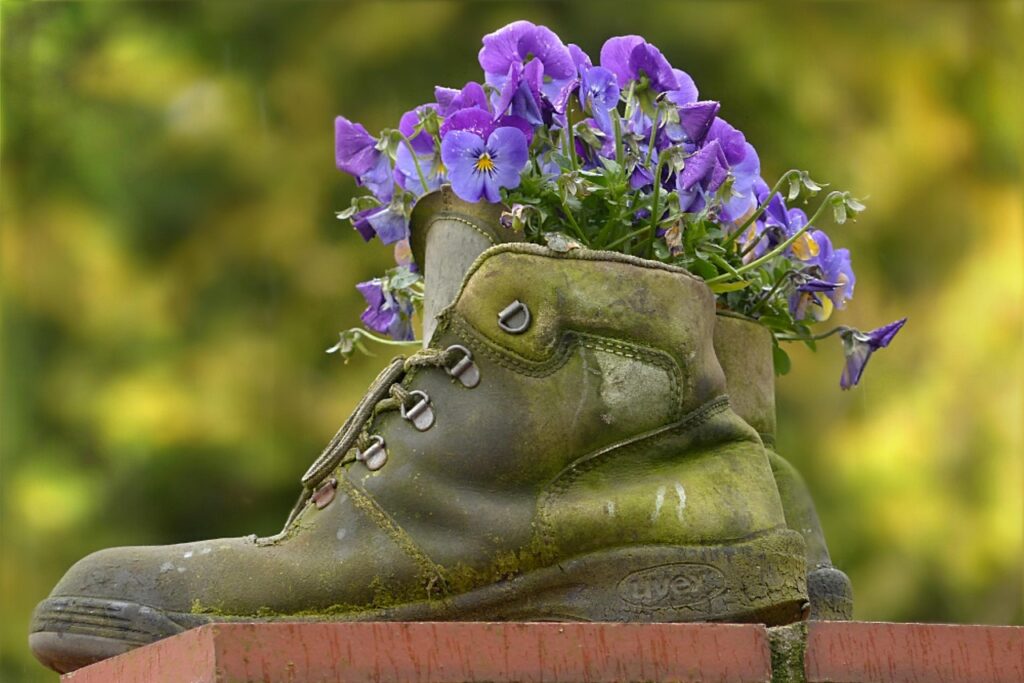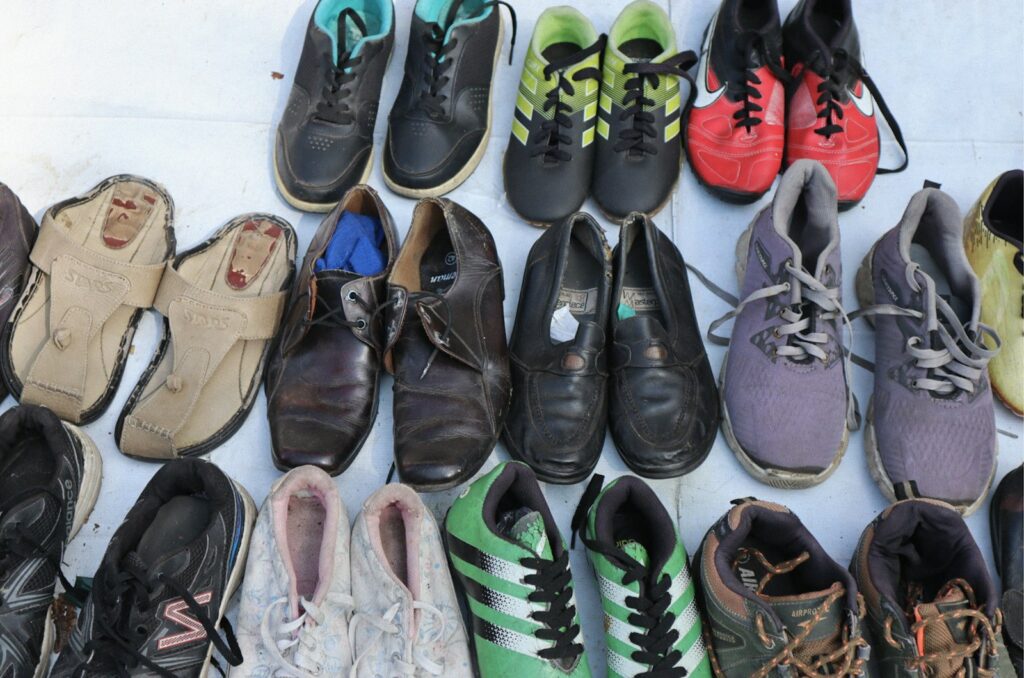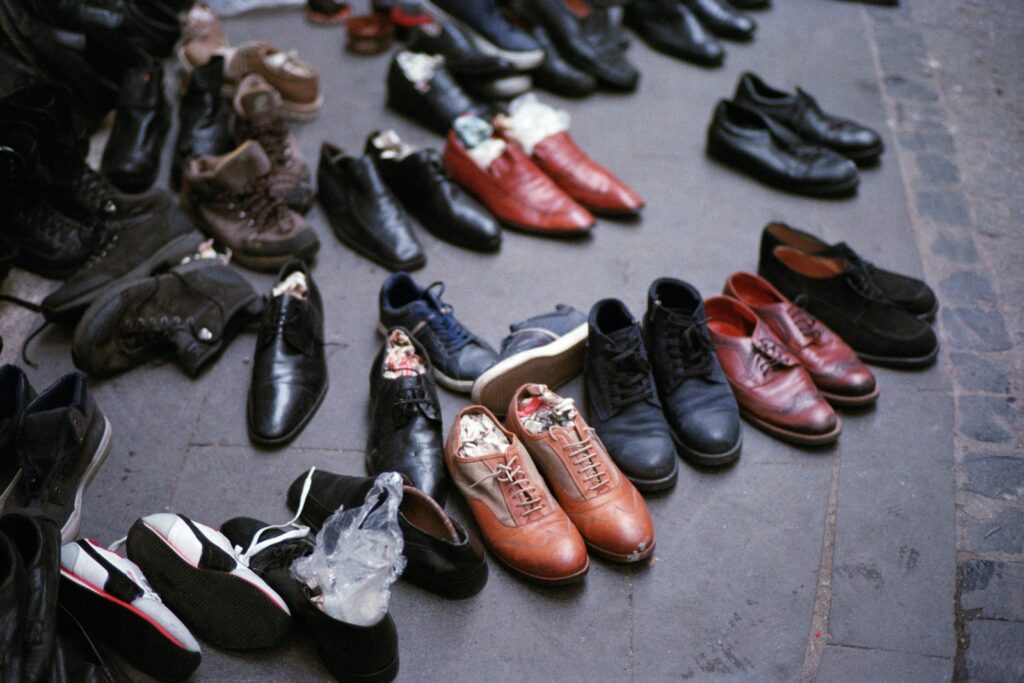The Deceptive Journey of Recycled Shoes
What happens to your old shoes when you drop them into a recycling bin? You hope they’ll be transformed into something new, contributing to a cleaner planet. But a recent investigation has peeled back the layers of these well-intentioned programs, revealing a journey far different, and far more troubling, than the one advertised.
In Singapore, a partnership between the chemical giant Dow and the national agency Sport Singapore (SportSG) launched a high-profile program in September 2020. The goal was ambitious and laudable: to collect 300,000 pairs of used shoes over three years and upcycle the rubber soles into materials for athletic facilities across the tiny nation, including jogging tracks, fitness areas, and playgrounds. Collection bins popped up at convenient locations like ActiveSG sport centres and stadiums, as well as stores like Decathlon and JD Sports, inviting the public to contribute to this seemingly sustainable effort.
The project was not just public-facing; it garnered recognition. In October 2022, the Singapore International Chamber of Commerce (SICC) named the initiative and its partners the Most Sustainable Collaboration during its annual awards. The partnership involved several key players: SportSG, Decathlon, Dow, Standard Chartered bank, surface solutions firm B.T. Sports, and local waste management company Alba-WH. Alba was tasked with collecting the donated shoes, while B.T. Sports managed the grinding facility where they were supposedly converted into rubber granules and materials.
Yet, beneath the surface of this celebrated program, something was going significantly wrong. Reuters journalists decided to put the system to the test. They had reason to be sceptical, noting that Dow, a major plastic maker, had a history of falling short on previous recycling promises. They pointed to past instances, including findings that the company was burning plastic waste it claimed was being recycled into clean fuel and a project to recycle plastic waste from the Ganges river that had shut down due to failing equipment.
GPS Trackers Unmask Recycling Lies
Environmental groups frequently voice concerns that chemical companies like Dow engage in greenwashing – making deceptive claims about environmental efforts – to appear more eco-friendly and avoid stricter regulations on materials like single-use plastic packaging. It was against this backdrop of questioning corporate environmental claims that the Reuters team embarked on their investigation.
The method was ingenious and revealing: they hid small tracking devices within the inner soles of 11 pairs of used shoes. These trackers, similar to those used in other waste investigations, leveraged GPS technology, GSM antennas, and movement detectors, programmed to transmit data after significant movement. This allowed the reporters to follow the shoes’ movements in real time via a smartphone app after donating them at different collection points across Singapore.
The findings were stark and contradicted the program’s stated purpose entirely. Over a six-month period, the Reuters investigation tracked the fate of these 11 pairs. The result? Not a single one made it to a Singapore recycling facility as promised. Instead, the trackers revealed a shocking alternative journey: several pairs ended up for sale in crowded bazaars located in neighboring Batam and Indonesia’s capital, Jakarta.
This discovery highlighted a critical failure in the recycling chain, but also exposed participation in an illegal trade. Importing secondhand clothing and footwear into Indonesia has been prohibited since 2015. This ban was enacted to protect Indonesia’s local textile industry and to safeguard public hygiene due to sanitation concerns associated with used goods. Yet, the Reuters report confirmed what many know – an illegal secondhand market continues to proliferate, exacerbating Indonesia’s already mounting garbage problem.
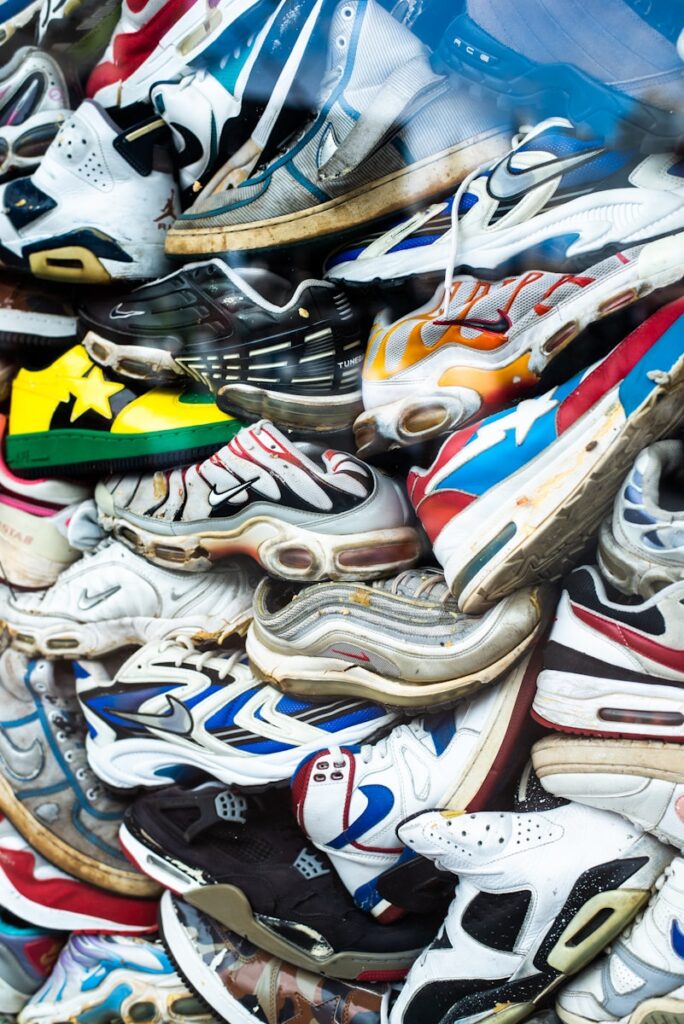
Confronted with the Reuters findings, which were first flagged to them in January, the project partners issued a joint media statement. They offered a sincere apology to the public for what they termed a “lapse.” They stated unequivocally that they “do not condone any unauthorised removal or export of shoes collected through this programme” and committed to taking steps to “tighten up the process chain based on our learning from this incident.” They even thanked Reuters for bringing the matter to their attention.
The partners explained the results of an investigation led by Alba-WH, completed on January 31. This inquiry found “vulnerabilities in the process chain with Alba-WH’s sub-contractor, which led directly to the collected shoes not being sent for recycling.” It turned out that Alba-WH had sub-contracted the bin collection process to a recycling firm named Yok Impex.
The shoes collected from the bins were being sorted at Yok Impex’s premises before being sent to Alba-WH’s warehouse for weighing and then supposedly on to the B.T. Sports grinding facility. The investigation confirmed that the supply chain was indeed compromised at Yok Impex’s site. It was there, where the collection bins were aggregated alongside Yok Impex’s own sorting activities, that some shoes were extracted for resale instead of being directed towards recycling.
This, the partners stated, was “likely how the shoes tagged by Reuters – and possibly others – were extracted from the programme’s recycling bins at Yok Impex’s premises for reuse and exported to other countries.” Their investigation concluded that this error occurred “only at Yok Impex’s facility and no other.” As a result, Alba-WH has ceased sending collection bins to Yok Impex’s premises and will not be renewing their services. Dow confirmed to Reuters that Yok Impex had been removed from the program.

Industry Complicity and Regulatory Failures
Adding context, an industry insider familiar with such recycling projects, speaking anonymously to The Straits Times, explained that typically, an organisation sorts items, separating usable shoes from those too worn out for reuse. This insider felt that in this case, such a distinction was not made clear by SportSG or Dow, allowing the external party, Yok Impex, to potentially pick out the good shoes for resale and only send the unusable ones for recycling. The insider suggested the exporter had “free rein” and “thorough checks did not take place.”
Meanwhile, the SICC, asked if it would review the award given to the project, stood by its decision. SICC chief executive Victor Mills stated that the award was given for recycling old sports shoes into new materials for sports tracks, which has indeed been done and will continue. He believed the incident was “down to the practices of one shoe collection agent and its contract has been terminated,” asserting that the incident did not undermine “the purpose of the collaboration nor its value.”
The partners stated that to date, 10,000kg of used shoes have been recycled and used in infrastructure like the Kallang Football Hub and a facility under construction in Jurong Town. They reiterated plans to use the rubber granules for future jogging tracks, fitness corners, and playgrounds. An earlier revelation from Dow in October 2021 indicated that 69,000 pairs had been collected by that point, suggesting that a significant portion of the collected shoes still await processing or their fate is unclear.
Product on Amazon: LAVAU Brown Flip Flops for Women, Rubber Thong Style Sandals, Summer Casual Water Shoes for Beach and Shower LAVAU-W-kami-10
Brand: LAVAU
Binding: Shoes Product Group: Shoes
Price: 19.99 USD
Features:
1. RECYCLED AND RECYCLABLE: Reduce waste and support sustainability with LAVAU women’s flip flops, made of at least 16% recycled material and 100% recyclable
2. STURDY AND DURABLE: Molded high-density rubber flip flops provide sturdy and long-lasting wear for any adventure
3. WORRIED ABOUT SLIPPING? No slip massage-pod footbeds and textured outsole offer maximum comfort and stability with every step
4. READY FOR FUN? These flip-flops sandals are waterproof, easy to clean, and quick to dry, making them the ideal choice for the beach, pool, shower or any wet conditions
5. WHAT SIZE TO CHOOSE? For a relaxed fit, we recommend ordering a size up from your regular shoe size. These women’s flip-flops are designed with better traction in mind, so they may feel a little tighter than traditional flip flops
Shopping on Amazon >>
Read more about: Gen Z Speaks Out: Enough is Enough with Sexist Fashion
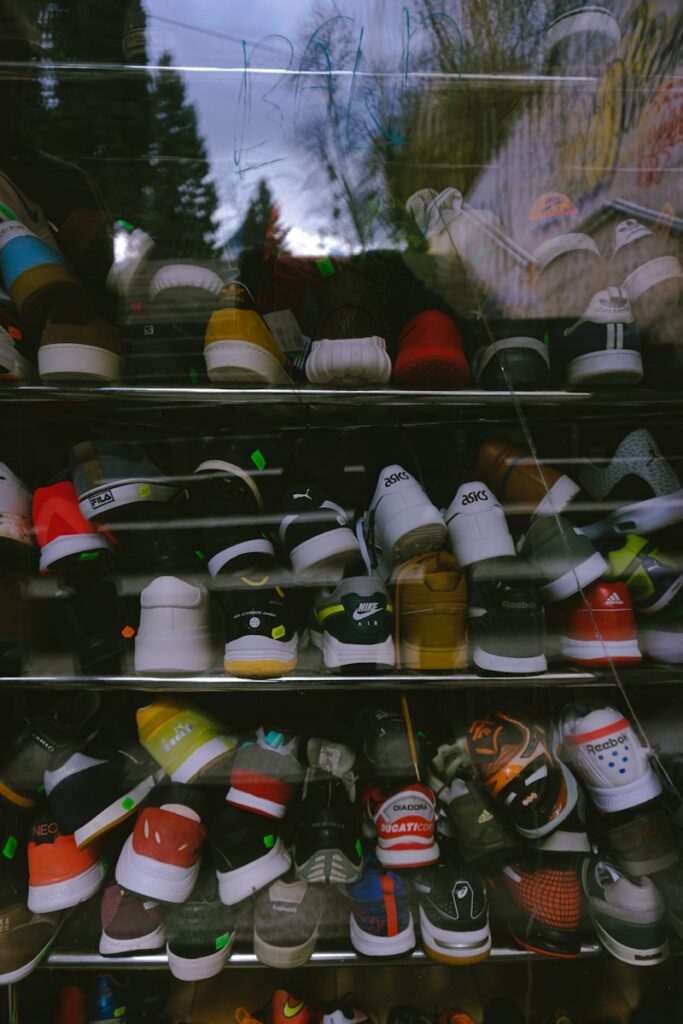
Despite the apologies and explanations, the public’s trust has been shaken. Mr. Sreetharan Segar, a 29-year-old working in logistics, shared his shock and disappointment after donating two pairs of Nike shoes in 2021. He told The Straits Times, “If I had known that this is a possibility, I might as well have used my shoes till their last days.” His sentiment highlights the potential consequence of such lapses: “If such a thing is possible, it has to be made clear to people who are donating. I think many people would think twice about donating.
This single investigation into sneaker recycling in Singapore is, unfortunately, not an isolated incident in the global effort to understand where our waste truly goes. As investigative journalist Mark Schapiro points out, “When things get thrown away they don’t just disappear.” Investigations that track the waste stream are vitally important, not just for environmental reasons, but also from a public health point of view, by revealing “another dimension to the profound inequities of who gets exposed to the toxic leakage from the waste stream.
The sheer volume of waste generated globally paints a daunting picture. According to a 2022 OECD report, the world now produces twice the amount of plastic waste it did two decades ago, with the vast majority ending up in landfills, incinerated, or polluting the environment, and only a meagre 9% successfully recycled. The numbers are staggering: the US generates around 221 kilograms of plastic waste per person annually, the equivalent weight of an upright piano, while Europe averages around 114 kg. In Germany alone, over 380 million pairs of shoes are discarded every year.
Product on Amazon: Nike Men’s Shoes, White, 8.5
Brand: Nike
Binding: Shoes Product Group: Shoes
Price: 99 USD
Features:
1. Basketball Shoes
2. Retro Style
3. Cushioning
Shopping on Amazon >>
Read more about: Flight Terror: United Jet’s Rapid Descent Over Africa Injures 16, Triggered by Dual System Failures

The Global Waste Crisis Exposed
Against this backdrop, the innovative use of tracking technology by journalists is proving to be an incredibly powerful tool for uncovering hidden realities. As Christian Salewski, co-founder of Flip and part of the German ‘Sneakerjagd’ investigation team, notes, “GPS is a very powerful tool for investigating where things end up once they are thrown away and GPS leads to data, which you can visualize on a map.” He finds tracking inherently exciting, creating “a natural cliffhanger: follow me as a reporter, I don’t know what will happen.”
The German ‘Sneakerjagd’ (Sneakerhunt) project, nominated for a European Press Prize in 2022, itself used trackers to follow discarded sneakers, revealing issues within the recycling industry. They discovered, for instance, that new Nike shoes were being destroyed instead of recycled. One pair of Pumas tracked in their investigation even led them to Nairobi, Kenya, exposing the vast flows of textile imports into Africa and the massive, environmentally damaging landfills consisting largely of unwanted old clothes.
Other investigations deploying similar tracking methods have unearthed equally troubling findings across the globe. In Sweden, the documentary ‘Dirty Clothes’ used GPS trackers and other methods to expose how organized crime gangs were stealing clothing from charity collection boxes and earning millions through illegal trade across multiple countries. In Slovenia, Oštro’s “Follow the Garbage” series attached trackers to 30 common household items, finding many recyclables ended up in regular trash or traveled unexpectedly to places like Croatia and Pakistan.
In Brazil, Metropoles attached over five dozen trackers to recyclable items after a waste company was caught illegally dumping material. Their investigation found recyclables were frequently misdirected or mixed with common trash, ending up in landfills, and their pioneering use of remote trackers for accountability reporting earned them a 2022 SIGMA Award. Finland’s Yle public broadcaster also used trackers hidden in used clothing, tracing items supposedly destined for charity or recycling to Latvia, Pakistan, and Africa, where they are sometimes referred to starkly as “dead white man’s clothes.”
Product on Amazon: LandAirSea 54 GPS Tracker – Made in the USA from Domestic & Imported Parts. Long Battery, Magnetic, Waterproof, Global Tracking. Subscription Required
Brand: LandAirSea
Binding: Electronics Product Group: Wireless
Price: 14.95 USD
Features:
1. Premium GPS Tracker — The LandAirSea 54 GPS tracker provides accurate global location, real-time alerts, and geofencing. Easily attaches to vehicles, ATVs, golf carts, or other critical assets.
2. Track Movements in Real-Time — Track and map (with Google Maps) in real-time on web-based software or our SilverCloud App. Location updates as fast as every 3 seconds with historical playback for up to 1 year.
3. Powerful & Discreet — The motion-activated GPS tracker will sleep when not in motion for extended periods, preserving the battery life. The ultra-compact design and internal magnet create the ultimate discreet tracker.
4. Lifetime Warranty — This GPS tracker is built to last. LandAirSea, a USA-based company and pioneer in GPS tracking offers a unconditional lifetime warranty that covers any manufacturing defects in the device encountered during normal use.
5. Subscription Required — Affordable subscription plans are required for each device. When prepaid, fees start as low as $9.95 a month for 2-year plans. Monthly plans start at $19.95. No contracts, cancel anytime for a hassle-free experience.
Shopping on Amazon >>
These investigations, like the Reuters one in Singapore, collectively highlight a critical point raised by Ojo Público journalist Kennia Velázquez: “Industry and governments say ‘you have to recycle your trash, be responsible.’ They put the responsibility onto the consumer, not the industry.” Yet, as Mark Schapiro observes, stories revealing the export of waste implicitly show that companies manufacturing goods with toxic components “often are under no pressure to deal with the waste part of their product.”
The investigations also reveal the significant challenges journalists face in tracing waste flows. The Ojo Público team, investigating plastic waste exports to Latin America, found that the recycling industry is often opaque. They painstakingly trawled through data manually, checking every line of description for container shipments because automated processes risked missing vital information. They reported extensive “opacity,” with many governments failing to respond to inquiries and only one company claiming “everything was perfect.”
The ‘Wasteland – Europe’s Plastic Disaster’ investigation by Investigate Europe similarly involved extensive data crunching, often using simple spreadsheets, but faced huge transparency problems. Lead researcher Nico Schmidt noted that getting to the story involved questioning the data and understanding its source, adding that data from plastic producers is sometimes presented almost as official data, requiring significant effort to compare different sources and understand basic principles hidden in footnotes.
The journey of a few pairs of sneakers from Singapore’s recycling bins to Indonesian markets, exposed by hidden trackers, is more than just a story about misplaced shoes. It is a potent symbol of the complex, often opaque, and frequently broken global waste system. It shows how easily the well-meaning actions of individuals – carefully donating items for recycling – can be undermined by failures within the collection and processing chain, whether through error, negligence, or deliberate diversion.
Read more about: Behind the Scenes at Ghana’s Largest Secondhand Clothing Market: A Journey of Resilience and Reinvention
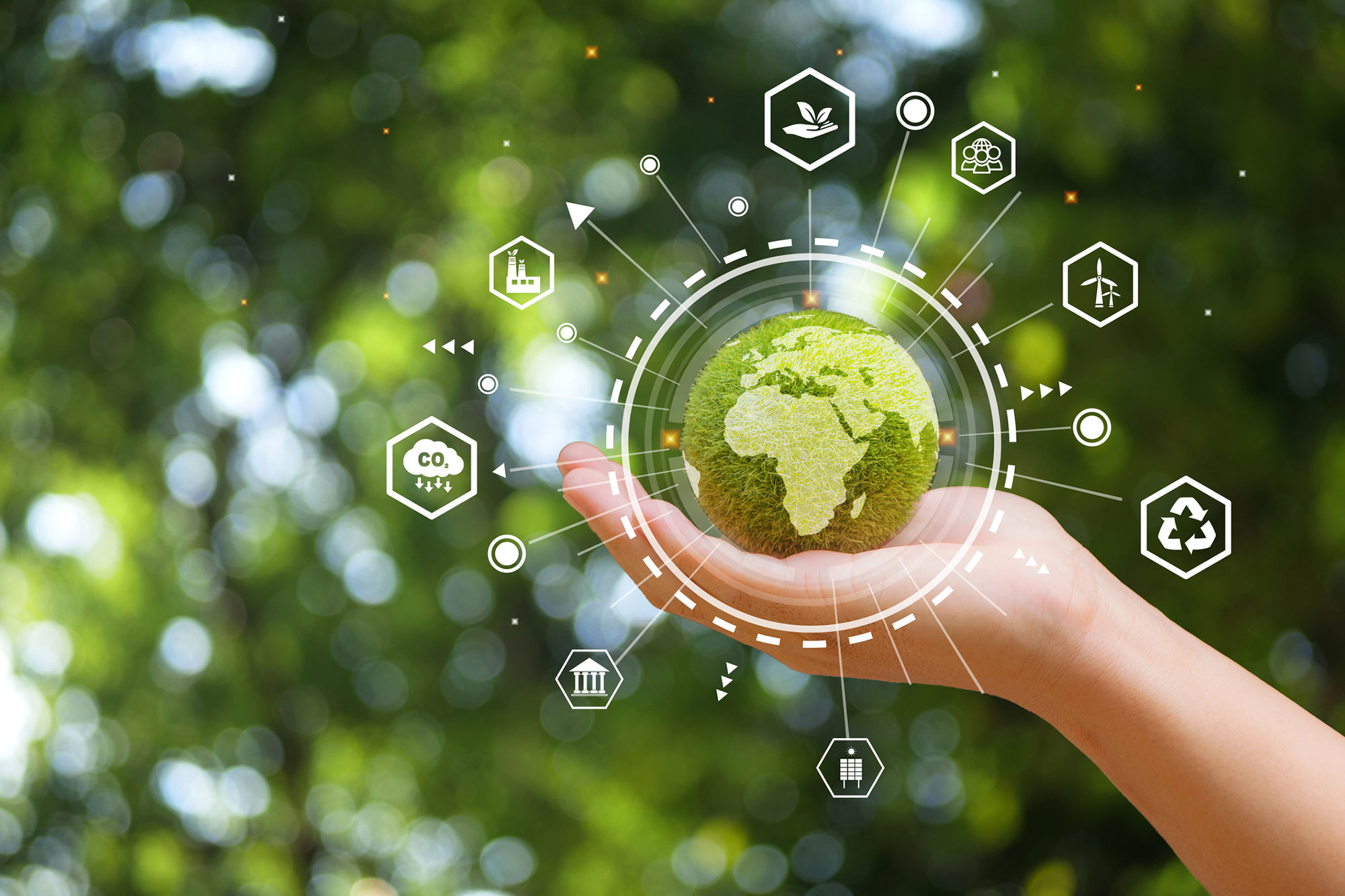
It underscores the urgent need for greater transparency and accountability from companies and governments that make public commitments to sustainability. When promises of recycling lead instead to illegal dumping and resale, it not only harms the environment and contributes to waste crises in other nations but also erodes the crucial public trust needed to tackle the monumental challenge of waste management effectively. The power of investigative journalism, using simple yet effective tools like trackers, lies in pulling back the curtain on these hidden flows, reminding us that what we throw away does not simply vanish into thin air, but embarks on a journey that we have a right, and a responsibility, to understand.
The response from Indonesia, promising to tighten customs checks on used shoe imports, shows that these investigations can spur action. But the fundamental questions remain: How can the public trust recycling programs? How do we ensure that the responsibility for waste is not merely offloaded onto consumers but is genuinely borne by the industries that create the products? The path forward requires not just better systems, but a commitment to truth and transparency at every step of the waste stream, ensuring that the promise of recycling isn’t just a convenient story, but a verifiable reality.
The stories of shoes and plastic bottles and clothing traveling unintended routes, revealed by the persistence of reporters and the quiet signals from hidden trackers, serve as a powerful, ongoing call to action. They urge us to look beyond the bin and demand accountability, shedding light on the unseen journeys of our discarded items and pushing for a future where recycling is not a hollow promise, but a genuine transformation.
Read more about: Gen Z Speaks Out: Enough is Enough with Sexist Fashion

Until then, the journey of a discarded sneaker, meant for a playground but ending up in a distant market, remains a vivid illustration of the distance we still have to travel on the road to true environmental responsibility. It is a testament to the fact that the story of our waste is far from over, and the need for watchful eyes and persistent questions is as critical as ever.
Read more about: Tracing the Origins of Everyday Clothing A Deep Dive into Textile History
So the next time you lace up your sneakers, or indeed, contemplate retiring them, remember their potential journey. Remember the trackers that revealed a truth hidden in plain sight. Remember that every item we discard has a story, and it’s up to us to ensure that story is one of genuine renewal, not inconvenient disappearance into someone else’s problem.
Related posts:
How a Journalist Finally Tracked Down the Elusive Con Queen of Hollywood
Major U.S. company faces backlash after allegedly lying to its customers: ‘They cannot be believed’
SportSG, partners apologise for ‘lapse’ in shoe-recycling project

